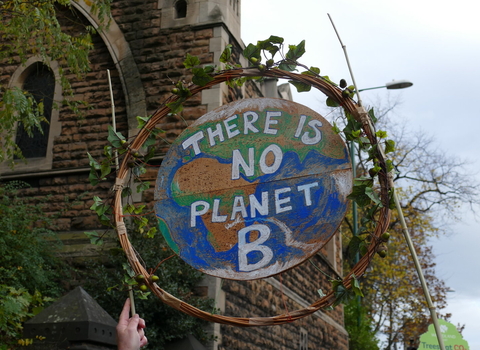There’s a huge amount of work to be done in Staffordshire to meet the target - and we urgently need to see rapid action to restore and create more natural habitats in the county. A healthy natural world provides us with clean water, protection from climate change, and food security – we rely on it in every aspect of our lives. Nature is not a luxury and needs to be thriving across the landscape – alongside food production on farms, within housing developments and businesses, on our streets, in our parks and in school grounds.Chief executive of Staffordshire Wildlife Trust
Staffordshire Wildlife Trust calls for urgent action to protect county’s natural riches as world nature summit gets underway
Almost 200 countries are gathering in Columbia for COP16, a two-week long conference that was established to promote action towards halting and reversing nature loss.
At the last biodiversity summit in 2022, the UK committed to a series of international goals to prevent ecological collapse, including the headline target of protecting 30% of land and seas for nature by 2030, also known as 30x30.
Despite this promise, just 2.93% of land in England can be said to be effectively protected for nature currently1. In Staffordshire the figure is almost as bleak according to the county’s Wildlife Trust, with their evidence base indicating just 5.22%* of land in the county can be confidently regarded as managed for nature2.
The 30x30 target is based on detailed scientific research. Like the 1.5°C tipping point for irreversible climate change, protecting 30% of land and seas for nature is a critical threshold that, if crossed, would lead to mass species extinctions.
Chief Executive of Staffordshire Wildlife Trust, Julian Woolford said:
“There’s a huge amount of work to be done in Staffordshire to meet the target - and we urgently need to see rapid action to restore and create more natural habitats in the county. A healthy natural world provides us with clean water, protection from climate change, and food security – we rely on it in every aspect of our lives. Nature is not a luxury and needs to be thriving across the landscape – alongside food production on farms, within housing developments and businesses, on our streets, in our parks and in school grounds.
“A Local Nature Recovery Strategy (LNRS) is currently being prepared by Staffordshire County Council, which will agree priorities for nature recovery and propose actions in locations where it would have the most impact on achieving those priorities. It is vital that the actions within the LNRS are made into a reality by everyone from local councils to landowners, community groups and businesses, so that we can restore the natural world before it’s too late.”
The Wildlife Trusts have launched a report, Local to Global – the Global Biodiversity Framework and what the UK needs to do to implement it, which outlines the steps the new Government must take to reverse nature loss and meet global targets.
Craig Bennett, chief executive of The Wildlife Trusts, who is attending COP16 in Colombia, said:
“There’s a colossal job to do in the next five years and we urgently need to see a radical approach to rebuilding our natural infrastructure fast. The UK is one of the most nature-depleted countries in the world whose degradation is so acute it is known to be causing big losses to UK GDP. So it’s brilliant to see that the new Government has signalled it takes the situation seriously and regards nature loss as a global security issue and is conducting a rapid review of its Environmental Improvement Plan.
“Meanwhile there are things the Government could do right now. They could ban the sale of peat, allow wild beaver reintroductions and introduce Wildbelt to put more land aside for nature recovery. Communities are already suffering from the effects of climate change – we’re experiencing extreme weather and floods – yet authorities are still reaching for short-term hard engineering solutions instead of rewilding floodplains to soak up water. The new UK Government must announce bold action for nature at home on the international stage.”
To read the report, visit The Wildlife Trusts website here: www.wildlifetrusts.org/news/new-report-shows-how-uk-can-reverse-nature-loss-and-lead-world-stage
* The Staffordshire figure (5.22%) is based on latest ecological data for the county and comprises nature reserves, Sites of Special Scientific Interest and Local Wildlife Sites that are being actively managed for nature.

Climate march Nottingham by Leanne Manchester
